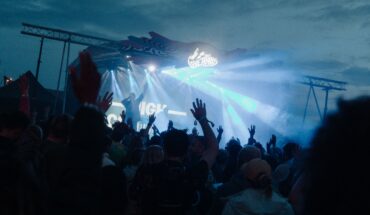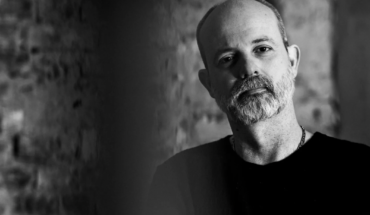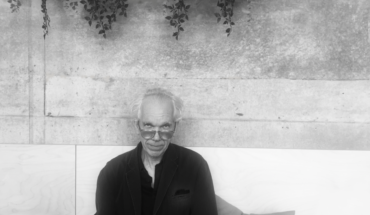Time for a quick sketch. Time to rethink Dr Johnson’s maxim and face the music. Or not, as the case may be.
London, 2040. A fast forward into the future. To the visitor from the past, everything looks the same. The roads curve and bend and run as straight as dies as they always have. There are the same old sweeping vistas, St Paul’s crouching incongruously as ever in the east and the river snaking blackly through it all, but on the north bank the temples of consumerism are noticeably more prolific, the forests of steel and glass cloudscrapers considerably denser, the people more numerous and more contented than they have been in the past, easy of limb and without a care in the world.
It’s Brand London come good, a success story the powers that be had long ago envisioned where no Londoner starves and everything is available, but for the right price. People throng to its heart, to a life of all mod cons, and yet for the time traveller who has stepped twenty years into the future to take a keen look at what has become of his city, he notices that the sound of his ancient home is very different. Something has changed and, on his arrival and suddenly in the thick of it, he experiences a disquiet. Something has gone very awry. It looks like the London of old, but the air no longer thrums and the people no longer walk to the beat of the street. Because there is no beat. Instead, they amble. To the visitor, they meander, passively and compliantly, as herds.
The traveller can’t quite put his finger on what it is that’s bothering him as the setting sun, blinding him, bounces off the walls of the glass canyon that was once the Strand. What, he asks himself, has turned this one-time mecca of culture into a bloated, generic metropolis of hard-to-conceive-of dullness? He walks on into the evening, visiting the famous thoroughfares in his search for the totems of his lost youth.
Where’s the Brixton Academy? he asks a passing stranger. He receives a shrug. He asks another. Ronnie Scott’s? Another shrug, a nervous glance. The Forum, Kentish Town? The Hammersmith Apollo? The 100 Club? The Scala? Ally Pally? The Roundhouse? Shrugs all round. No one has heard of any of them. Then the penny drops: all the live music venues have disappeared. Closed down, expunged from the capital. It’s a slate wiped clean. A city made safe. A place where people can no longer congregate in public to lose themselves in a moment of spiritual uplift.
The visitor has arrived in a future perfectly structured so that there can be no room for free thinking to take root, no room also for the joys of live music; for it is only the safety valve of a live gig that has consistently made harsh city life somehow liveable. Without live music, one might argue, a city will only attract a certain type of person… the enemy of art.
But, sadly, this skewed version of the future is being authored now, the seeds of London’s cultural deconstruction having already been sown. London today lies strewn across the river, a series of streets jammed with cake shops, coffee emporia and numberless clothes outlets in which gather a consumerati that is forced to listen to the piped, hissing thump of canned music. Gone already, and without a fight, are venues such as The Astoria (pictured), the Hammersmith Palais, the Mean Fiddler, Elephant and Castle’s Coronet Theatre, the 12 Bar, the Marquee, Water Rats and Madame JoJo’s, among many others, supplanted more often than not by unaffordable housing developments.
These are just some of the musical venues that have vanished forever with the list of casualties getting longer, despite the Mayor in the glass gonad by the river calling it progress and having promised that his ‘night czar’ (pitched as a caring official who would protect London’s world-renowned musical heritage) will protect our cultural fabric. But all that has been delivered is a nightmare of urban development that looks more like a scorched earth policy in thrall to the developers.
An ill wind blows through the streets of London. Modern politics being what it is, it ensures that we comply with the modernisation of a once culturally fertile city, with music ‘consumed’ through earphones on a minute-by-minute basis making for a very bad omen, each one of us isolated – and made vulnerable in our social isolation – yet part of the swelling crowd.
Unchecked, the fiction described above will become reality. And perhaps, just perhaps (because it’s about time it was), we must amend Dr Johnson’s oft-cited adage: ergo, when a man is tired of London, it’s when he is tired of being insulted.
Jason Holmes
@JasonAHolmes





